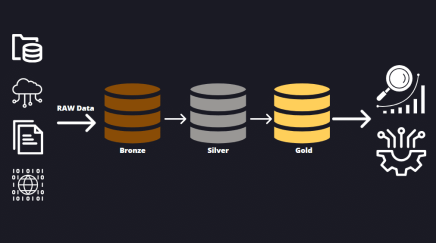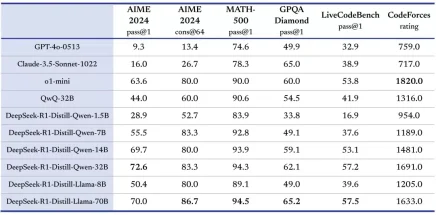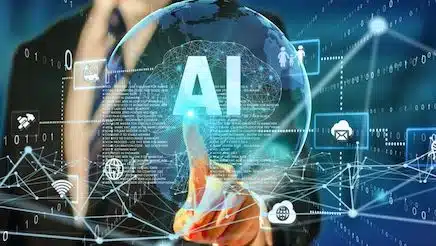QuadraByte is the leading professional services firm in the Intelligence Economy, trademarked by its founders in 2022, and drives our commitment to data, analytics, AI/ML, and blockchain.
The Intelligence Economy is a concept that refers to the economic and social systems that are driven by the development and use of artificial intelligence (AI) and other forms of intelligence. In the Intelligence Economy, knowledge, information, and intelligence are key factors of production and play a central role in the creation of wealth and the distribution of resources.
The Intelligence Economy is characterized by the increasing use of AI and other forms of advanced analytics in a wide range of industries and sectors, including manufacturing, finance, healthcare, education, and government. This has led to the emergence of new business models and the growth of new industries that are focused on the development and deployment of AI and related technologies.
The Intelligence Economy is also marked by the increasing integration of AI and other forms of intelligence into our daily lives, as well as the growing importance of data as a strategic asset. This has led to the emergence of new opportunities for individuals and organizations to leverage their knowledge, skills, and expertise in the development and use of AI and related technologies.
Overall, the Intelligence Economy is a complex and rapidly evolving system that is shaped by a wide range of economic, social, and technological factors. The results are significant impacts on the way businesses operate and interact. This can include activities such as data mining, market research, competitive analysis, intelligence gathering for national security purposes, and making sense of large amounts of data.
Businesses and organizations are working towards this today through the use of various tools and techniques to gather, process, and analyze information to make better decisions, identify trends, and develop strategies. This is done for a variety of purposes, such as identifying business opportunities, gaining a competitive advantage, or improving the customer experience.
In recent years, the Intelligence Economy has grown significantly due to the increasing availability and accessibility of data, as well as advances in AI and other technologies that have made it easier to process and analyze large amounts of information. As a result, it has become an essential part of the global economy, with a wide range of organizations participating in this market.
Why is the Intelligence Economy important?
The Intelligence Economy is important for a number of reasons, including:
- Decision making: The Intelligence Economy plays a critical role in helping organizations and businesses make better decisions by providing them with access to relevant, accurate, and timely information. This can be particularly important in fast-moving and complex environments, such as healthcare and supply chain, where rapid decision-making is required.
- Competitive advantage: By gathering and analyzing information about competitors, market trends, and other relevant factors, organizations can gain a competitive advantage over their rivals. This can be especially important in highly competitive industries where small advantages can make a big difference.
- National security: Intelligence gathering and analysis is critical for national security purposes, such as identifying and tracking potential threats to a country’s interests. This can include activities such as espionage, surveillance, and intelligence analysis of various types of data.
- Economic growth: The Intelligence Economy can contribute to economic growth by providing organizations with the information they need to identify new opportunities and make informed business decisions. This can help drive innovation, create new jobs, and stimulate economic activity.
Overall, the Intelligence Economy plays a vital role in helping organizations make better decisions, gain a competitive advantage, and contribute to economic growth.
What is the role of the Intelligence Economy in healthcare?
The healthcare industry benefits in a number of ways from moving forward in the Intelligence Economy. Healthcare generates a large amount of data, including patient records, claims data, and clinical trail results. By using tools and techniques defined by the Intelligence Economy, healthcare organizations can analyze this data to identify trends, predict outcomes, and make more informed patient-care decisions.
When looking through the lens of personalized medicine, providers can use data and AI to create personalized treatment plans for patients based on their unique characteristics and medical histories. This can help improve patient outcomes and reduce the cost of care for patients and providers. Using some of these same patterns, organizations can leverage them to help improve the health of entire populations rather than just treating individual patients. This can include identifying risk factors from diseases, predicting outbreaks, and developing targeted prevention and treatment strategies.
For those organizations that conduct clinical trials, intelligence gathering and analysis can help design more effective trials by identifying the most promising drugs and therapies, selecting the right patient populations, and predicting likely outcomes.
The impact of the Intelligence Economy on cost savings.
By using tools and techniques to analyze data, organizations can identify inefficiencies, reduce waste, and streamline operations. For example, a healthcare organization might use data analysis to identify patterns in patient care that are leading to unnecessary costs, such as repeated visits or unnecessary tests.
Here are some other industries and how they are able to leverage data for cost reduction:
- Manufacturing: By using data and AI to optimize production processes, manufacturers can reduce waste, improve efficiency, and lower costs.
- Retail: Using data and AI to analyze customer behavior and preferences, retailers can improve their inventory management, serve customers faster, and create more targeted marketing strategies.
- Financial Services: Data and AI can be used to analyze market trends and customer behavior to make more informed investment decisions, reduce investment and loan risk, and predict economic ups and downs.
Choose the right partner.
In summary, the Intelligence Economy is a global market for goods, services, and technology-related intelligence gathering and analysis. It plays a vital role in helping organizations and individuals make better decisions, gain a competitive advantage, and contribute to economic growth and national security. The intelligence economy can also help businesses in a wide range of industries use data and AI to optimize operations, reduce costs, and drive innovation. As the availability and accessibility of data continue to increase, and as advances in AI and other technologies make it easier to process and analyze large amounts of information, the Intelligence Economy is likely to continue to grow and play an increasingly important role in the global economy.
Are you ready to move your business forward in the Intelligence Economy? You can learn more about the Intelligence Economy, download our one-page overview, listen to our podcast, or contact us here.



